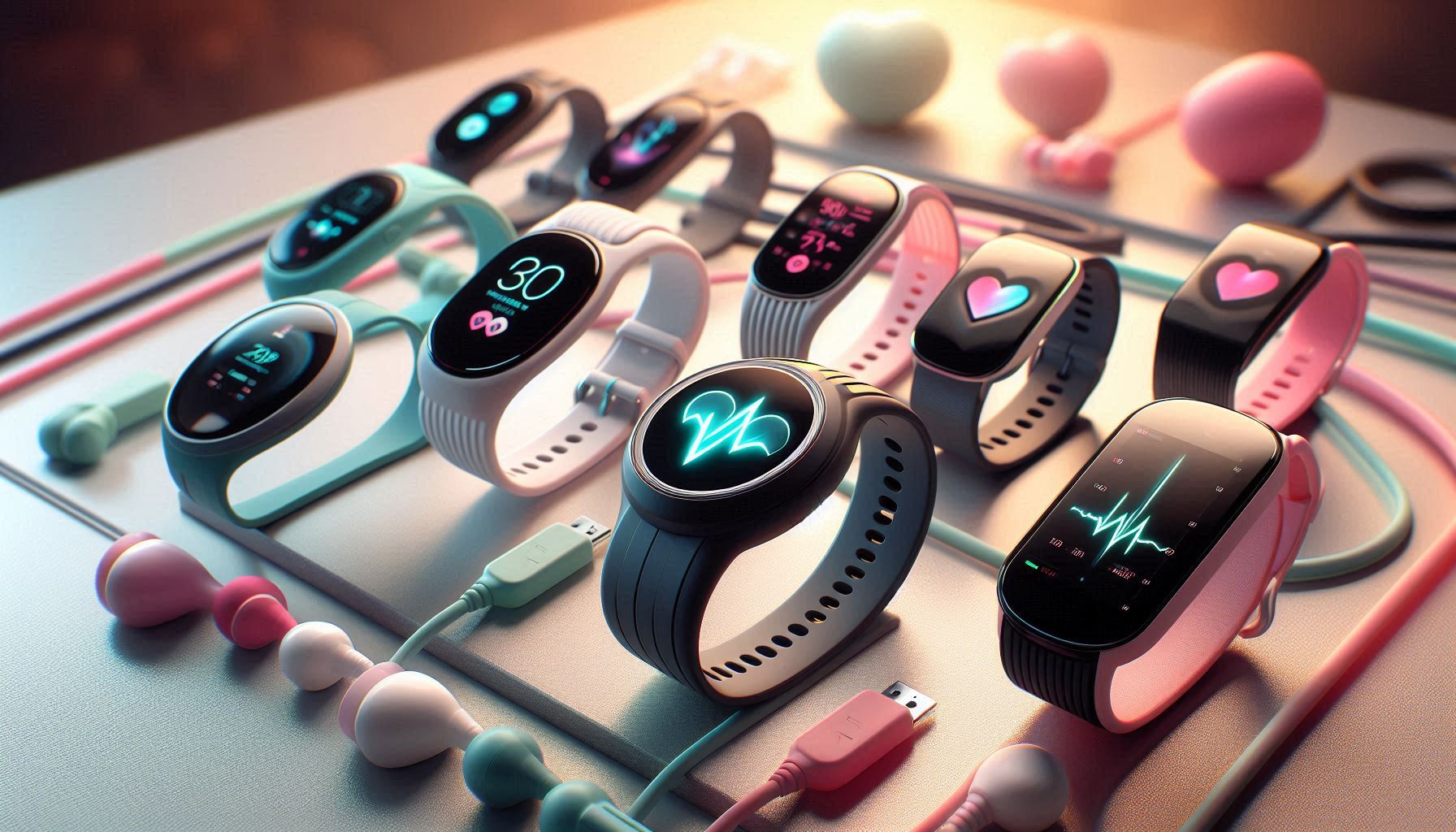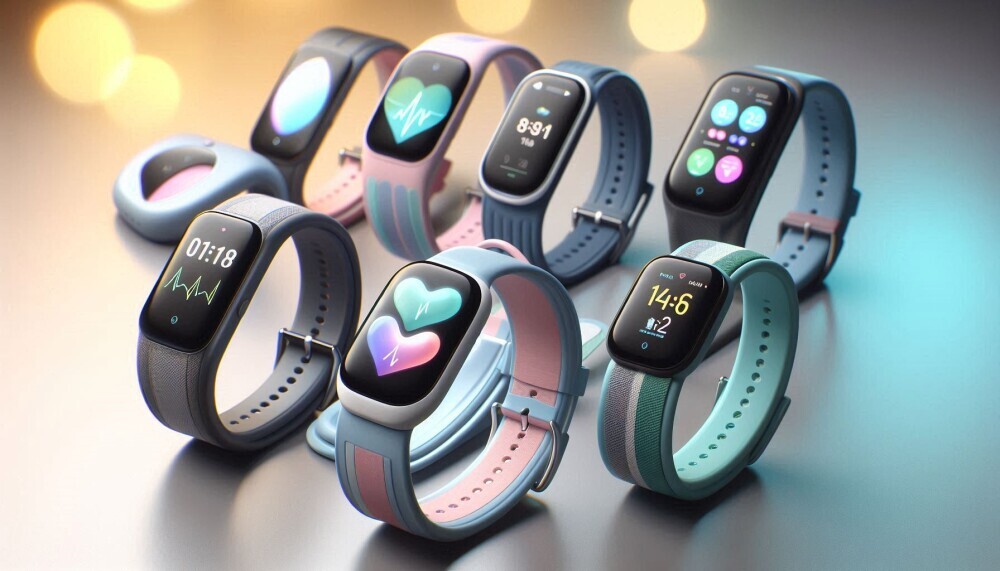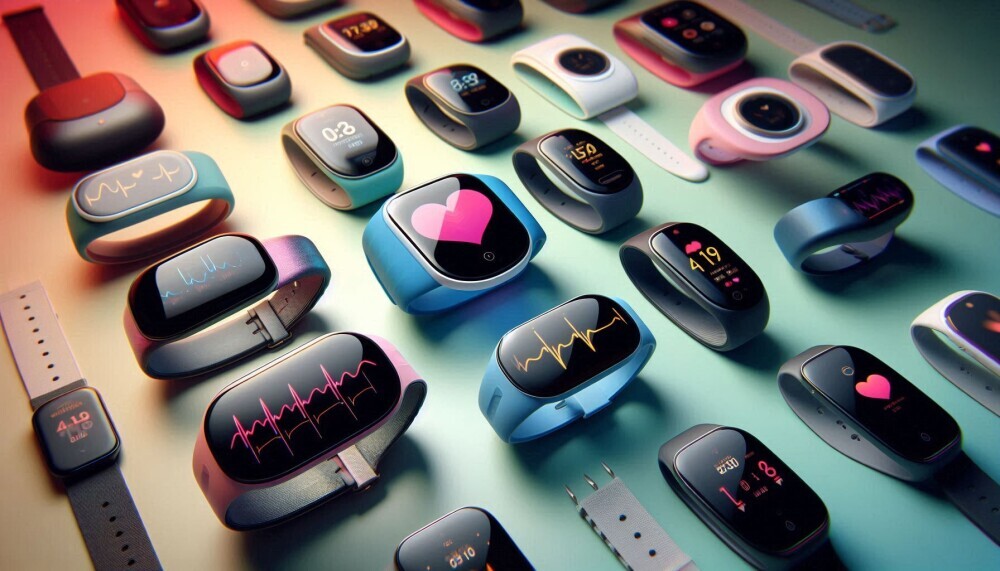Welcome to Vertevia, the home of wearable health tech. In this comparison review article, we will be looking at Comparing Wearable ECG Monitors: Which Device Is Right For You? Are you currently an ECG device wearer? If you are, what are your opinions on these devices? Please tell us in the comments section at the bottom of the page. Right, let’s get started with the main content!
Introduction
Wearable health technology is transforming how we track and manage our well being, and one of the most ground breaking innovations is the integration of ECG (electrocardiogram) functionality into consumer devices. Once confined to clinical settings, ECG monitoring is now available on your wrist or even your finger, providing real time insights into heart health, irregular rhythms, and early warning signs of cardiovascular issues. With heart disease being a leading cause of death worldwide, ECG capable wearables offer peace of mind, proactive health tracking, and in some cases, life saving detection.
But with a growing number of ECG enabled wearable devices on the market, how do you choose the right one? Each device offers unique features, levels of accuracy, usability, and eco system integration. In this article, we’ll break down the top wearable ECG monitors, comparing them based on their core functionalities, price points, benefits, and limitations. Whether you’re looking for fitness focused insights, medical grade accuracy, or all day heart monitoring, this guide will help you find the best device to suit your lifestyle and needs.
Why Use a Wearable ECG Monitor?
Electro cardiogram monitors help detect irregular heart rhythms like atrial fibrillation (AFib), a condition that may go unnoticed but can lead to strokes or heart failure. Wearable ECG devices offer convenient access to this kind of monitoring without visiting a doctor’s office. They’re perfect for people with known heart conditions, those at risk of cardiovascular disease, or even health conscious individuals who want comprehensive data on their physical state.
Unlike traditional fitness trackers that focus on movement, calories, and steps, ECG monitors go deeper into vital signs. They provide a more detailed picture of heart function by capturing electrical activity and flagging any inconsistencies. Some devices even generate PDF reports you can share directly with a physician, helping bridge the gap between personal monitoring and professional care.
Top 7 Wearable ECG Devices Comparison
Apple Watch Series 9
- Price: £399+
- ECG Feature: FDA cleared ECG app with irregular rhythm notifications.
- Key Features: Heart rate tracking, blood oxygen, sleep tracking, fitness tracking, fall detection.
- Pros: User friendly, strong app ecosystem, excellent health integration.
- Cons: Short battery life (18 hours), works best with iPhone.
Samsung Galaxy Watch 6
- Price: £319+
- ECG Feature: Built-in ECG sensor with Samsung Health Monitor (Android only).
- Key Features: Blood pressure monitoring, SpO2, sleep score, stress tracking.
- Pros: Stylish design, strong Android integration, multiple health features.
- Cons: ECG limited to Samsung phones, average battery life.
Fitbit Sense 2
- Price: £249
- ECG Feature: On demand ECG app with AFib detection.
- Key Features: EDA (stress sensor), skin temperature, sleep tracking, GPS.
- Pros: Holistic wellness tracking, long battery life, user friendly.
- Cons: ECG results not as detailed, some features require Fitbit Premium.
Withings ScanWatch
- Price: £279
- ECG Feature: Medical grade ECG with 30 second readings, AFib detection.
- Key Features: SpO2, sleep apnoea detection, 30 day battery life.
- Pros: Classic analogue watch design, medically validated, long battery life.
- Cons: Limited smart features, smaller screen.
KardiaMobile 6L (by AliveCor)
- Price: £149 (not a wearable, but portable)
- ECG Feature: 6 lead ECG, medical grade accuracy.
- Key Features: Syncs with app, generates reports for doctors.
- Pros: Highly accurate, suitable for clinical sharing, compact.
- Cons: Not wearable, requires manual use, no fitness tracking.
Garmin Venu 3
- Price: £449
- ECG Feature: ECG functionality (available via app in select regions).
- Key Features: Advanced HRV, stress tracking, sleep score, fitness insights.
- Pros: Ideal for fitness users, strong battery life, sports focused.
- Cons: ECG support region dependent, lacks FDA approval.
Oura Ring Gen 3 (Rumored ECG)
- Price: £299
- ECG Feature: Not currently available but expected in future updates.
- Key Features: Sleep tracking, readiness score, temperature monitoring.
- Pros: Minimalist design, comfortable for sleep, excellent recovery tracking.
- Cons: Lacks current ECG capability, no display.
Comparison Breakdown by Feature
-
ECG Accuracy:
- Best: KardiaMobile 6L, Withings ScanWatch
- Good: Apple Watch Series 9, Galaxy Watch 6
- Moderate: Fitbit Sense 2, Garmin Venu 3
-
Battery Life:
- Best: Withings ScanWatch (30 days)
- Good: Fitbit Sense 2 (6 days), Garmin Venu 3 (up to 10 days)
- Moderate: Apple Watch, Samsung Galaxy Watch (1 to 2 days)
-
Ease of Use:
- Best: Apple Watch, Fitbit Sense
- Moderate: Samsung Galaxy, Garmin Venu
- Advanced: KardiaMobile (requires setup and use)
-
Smart Features:
- Best: Apple Watch, Galaxy Watch
- Moderate: Fitbit, Garmin
- Basic: Withings, KardiaMobile
Frequently Asked Questions (FAQs)
- Can a wearable ECG detect a heart attack?
- No, most wearable ECGs are not designed to detect heart attacks but can detect AFib or irregular rhythms.
- Is ECG on a smartwatch accurate?
- It’s reasonably accurate for spotting rhythm irregularities but not a replacement for a medical ECG.
- Do I need a subscription to use the ECG feature?
- Devices like Fitbit require Fitbit Premium for full access. Others like Apple or Withings offer ECG features without subscriptions.
- Can I share ECG results with my doctor?
- Yes. Most wearables export results in PDF format for medical consultation.
- Is the ECG feature always on?
- No. ECG must be triggered manually on most wearables (hold a finger, sit still, etc.).
- Which wearable ECG is best for Android users?
- Samsung Galaxy Watch 6 or Fitbit Sense 2 are good choices. Apple Watch requires an iPhone.
How to Maximize the Use of Your ECG Wearable Device
- Understand when to take readings: Use ECG functionality when you feel symptoms (e.g., dizziness, palpitations) or as part of a routine check up.
- Stay still during readings: For best accuracy, sit and stay relaxed while the ECG runs.
- Track patterns: Don’t rely on one reading. Regular monitoring gives better insights.
- Use app integration: Make use of the accompanying app for analytics, reports, and reminders.
- Consult your doctor: Share results during check-ups to help with early detection or ongoing monitoring.
- Pair with other health features: Use ECG alongside sleep tracking, HRV, and stress management tools for a full wellness picture.
Conclusion
Wearable ECG monitors are game changers for anyone interested in taking control of their heart health. From the discreet sophistication of the Withings ScanWatch to the all in one smart experience of the Apple Watch Series 9, the market offers something for every lifestyle and health priority. Whether you’re managing a diagnosed condition or simply want to be proactive about your cardiovascular wellness, these devices bring medical grade insight to your fingertips. Often in real time!
Choosing the right ECG wearable depends on your health goals, budget, and daily habits. If you’re an iPhone user looking for seamless integration and robust health features, the Apple Watch is hard to beat. Android users may prefer the Samsung Galaxy Watch 6, while those focused purely on ECG accuracy might lean toward Kardia Mobile or Withings. Ultimately, the best ECG wearable device is the one that fits your routine and motivates you to stay informed, proactive, and heart healthy.
Our Thanks!
Many thanks to you for taking the time to read through our article on Comparing Wearable ECG Monitors: Which Device Is Right For You? We hope that it has been informative and helpful to you as you search for a suitable wearable ECG monitor. If you would like some further reading on wearable health tech comparisons, take a look at our related article which is titled Oura Ring Vs Fitbit: Which Fitness Tracker Wins?
Please let us know which wearable ECG monitor you’re currently using or considering purchasing in the comments section below!
**Here is a bit of transparency. Our website www.vertevia.com does contain affiliate links and Amazon links. So, if you did make a purchase through the website, we may receive a small commission. This is at no extra cost to you whatsoever. It’s just a way for you to support us as we continue to bring you top quality content**
All the best!
Eamon





